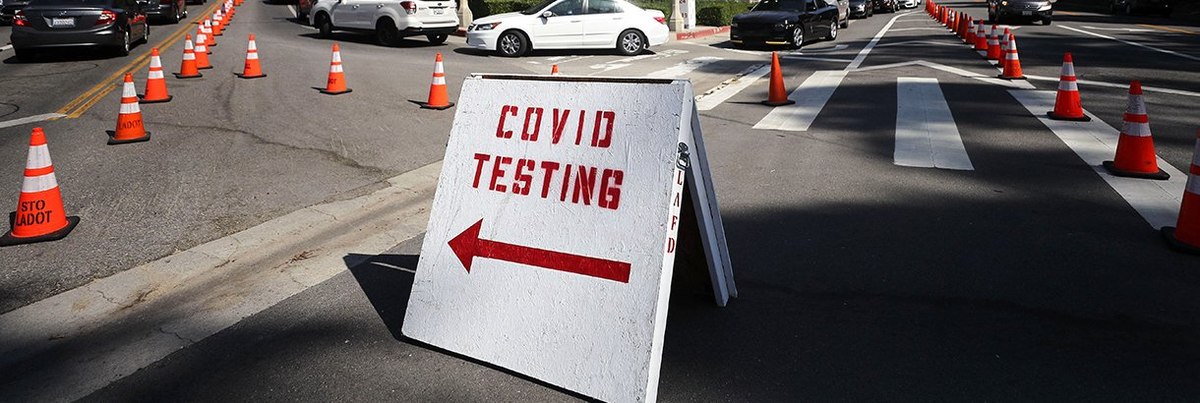The surge in coronavirus cases in states led by GOP governors such as Arizona, Florida, Texas, and South Carolina may be changing how seriously people view the problem in the United States.
This week in the latest Economist/YouGov Poll, half of Republicans, who had been less likely than others to believe there was a serious problem in their own communities, now see the virus as a serious concern. Since just last week, the share of Republicans saying it was a very serious problem rose 11 points (from 9% to 20%).
Independents who call the virus a very serious problem in their community rose by seven points from (16% to 23%). The share of those who consider COVID-19 a very serious problem in the South and the West, jumped 10 points and 13 points, respectively.
Though worry about their local situation increased among the groups that were less likely to see a problem before, opinions of the seriousness of the problem nationally have changed less. Worry about the problem nationally was always higher than local concern. Last week and this week majorities said COVID-19 is a very serious problem nationally.
The virus is affecting perceptions of the president, as more Americans disapprove of his handling of the situation. This week, 57 percent of the public disapproves, the highest percentage ever, up three points from a week ago. Nearly one in five Republicans (18%) and more than half of Independents (56%) disapprove of President Trump’s handling of COVID-19, marking the highest disapproval levels among both groups. Nearly nine in 10 Democrats disapprove of the President’s performance on the issue (88%).
Concern about the impact of coronavirus on the economy lessened a bit, as the public saw the unemployment rate drop over the last two months. It is currently 11.1%, down 2.2 points from a month ago, and 3.6 points from its peak two months ago. But more than half the public doubts the current statistics. One in two Americans (52%)—including one in four Republicans—say the actual jobless rate is even higher than what has been reported. A third of the public believes the unemployment rate rose in the last month (it did not), and a third believe it is currently higher than 12%. But at least one in five people (22%) believe it is in single digits.
Despite the geographic spread of COVID-19 hotspots outside Democratic regions, there still remain partisan differences in views of how serious the virus might be. Although a majority of Republicans (52%) say they are worried about contracting the virus (the highest percentage in more than a month), far more Democrats (78%) and slightly more independents (55%) are worried. Like previous polls, a quarter of Republicans (25%) think it is safe to stop social distancing now, something only 2 percent of Democrats believe is the case.
Many Americans view the pandemic itself as a long-term problem, one that is dividing the country now and in the future. Nearly half (47%) say the pandemic will get worse, while just 19 percent believe the worst is behind us. By more than three to one (54% to 15%), Americans of all partisan beliefs think it is dividing, not uniting the country. But in the long run, there is a little more hopefulness: almost a third (32%) still think the virus will divide the country, but 22 percent say it will unite people. On this question, Republicans are the pessimists. Democrats are as likely to believe the pandemic will unite (29%) the country as divide it (28%); Republicans, by 36 percent to 21 percent, say it will divide the country.
There is agreement on one thing about COVID-19. Americans support making mask-wearing in public mandatory by more than three to one. Democrats are nearly unanimous about it, but a majority of Republicans agree.
2020 Trump supporters, like the President, are less willing to commit to mask-wearing. A majority oppose (54%) making mask-wearing mandatory though more than two in five Trump supporters would support (42%) doing just that.
See the full toplines and crosstabs from this week's The Economist/YouGov Poll
Methodology: The most recent Economist survey was conducted by YouGov using a nationally representative sample of 1,500 U.S. adult citizens interviewed online between July 5 - 7, 2020. The approximate margin of error is 3.2 percentage points for the overall sample. Samples are weighted according to gender, age, race, and education based on the American Community Survey, conducted by the US Bureau of the Census, as well as 2016 Presidential vote, registration status, geographic region, and news interest. Respondents were selected from YouGov’s opt-in panel to be representative of all US citizens.
Image: Getty








